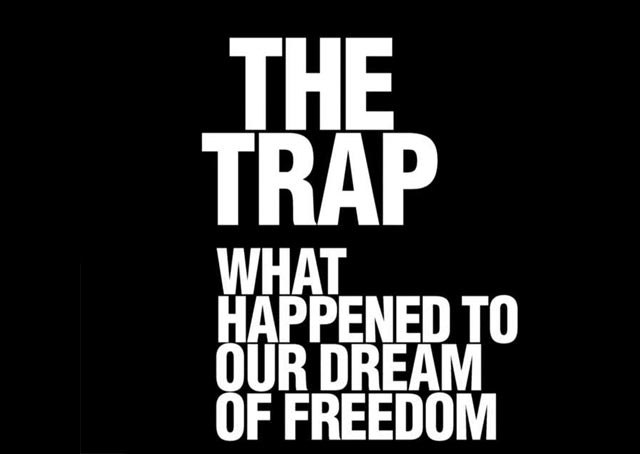
If one steps back and looks at what freedom actually means for us today, it’s a strange and limited kind of freedom. The West apparently fought the Cold War for “individual freedom”, yet it is still something our leaders continually promise to give us. Abroad, in Iraq and Afghanistan, the attempt to force “freedom” on to other people has led to bloody mayhem. This, in turn, has helped inspire terrorist attacks in Britain. In response, the government has dismantled long-standing laws that were designed to protect individual freedom…
Episode 1: F**k You Buddy
This first episode examines the rise of game theory during the Cold War and the way in which its mathematical models of human behaviour filtered into economic thought. The programme traces the development of game theory with particular reference to the work of John Nash, who constructed logically consistent and mathematically verifiable models, for which he won the Nobel Prize in Economics. He invented system games reflecting his beliefs about human behaviour, including one he called “Fuck You Buddy” (later published as “So Long Sucker”), in which the only way to win was to betray your playing partner. These games were internally coherent and worked correctly as long as the players obeyed the ground rules that they should behave selfishly and try to outwit their opponents. As the 1960s became the 1970s, the theories of a Scottish psychiatrist, R.D Laing, and the models of Nash began to converge, producing a widespread popular belief that the state (a surrogate family) was purely and simply a mechanism of social control which calculatedly kept power out of the hands of the public. This episode shows how this belief allowed economic models that left no room for altruism to look credible, and that this underpinned the free-market beliefs of Margaret Thatcher who sincerely believed that by dismantling as much of the British state as possible and placing former national institutions into the hands of public shareholders, a new form of social equilibrium would be reached. This was a return to Nash’s work, in which he proved mathematically that if everyone was pursuing their own interests, a stable, yet perpetually dynamic society could result. But as the mathematically modelled society is run on data—performance targets, quotas, statistics—it is these figures combined with the exaggerated belief that human selfishness will provide stability, that has created “the trap”.
Episode 2: The Lonely Robot
The second episode reiterates many of the ideas of the first, but develops the theme that drugs such as Prozac and lists of psychological symptoms which might indicate anxiety or depression are being used to normalise behaviour and make humans behave more predictably, like machines. This is not presented as a conspiracy, but as a logical although unpredicted outcome of market-driven self-diagnosis by check-lists based on normal symptoms of human emotion.
Episode 3: We Will Force You to Be Free
The final part in this series focuses on the concepts of positive and negative liberty introduced in the 1950s by Isaiah Berlin. The episode briefly explains how negative liberty could be defined as freedom from coercion and positive liberty as the opportunity to strive to fulfil one’s potential.


